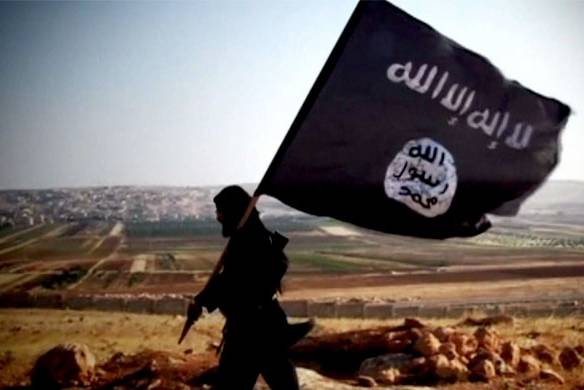The United States and other key members of the global coalition to defeat Islamic State are voicing renewed concerns about the terror group against the backdrop of a massive campaign to root out operatives trying to turn a once-liberated area into a new stronghold.
Foreign ministers with the so-called Global Coalition to Defeat ISIS Small Group met virtually Tuesday, more than two years after the collapse of the terror group's self-declared caliphate in Iraq and Syria, to focus on what they describe as increased activity in areas once controlled by the group's fighters.
"The threat remains," the ministers said in a joint communique following the meeting about the group, also known as ISIS or by the Arabic acronym Daesh. The ministers added that they "took note of the resumption in Daesh/ISIS activities in areas where the Coalition is not active."
But while the communique called on coalition members to provide "adequate military and civilian resources" to partner forces in both Iraq and Syria and welcomed NATO's pledge to expand its training mission in Iraq, it offered little in the way of specifics.
Since the fall of the self-declared caliphate, the U.S. and other coalition members have provided training, supplies and funds to security forces in Iraq and the mostly Kurdish Syrian Democratic Forces (SDF) in Syria. But there are concerns that the present levels of support may not be enough.
In Syria, SDF commanders have repeatedly warned that IS has been finding ways to exploit weaknesses in SDF and Iraqi defenses, helping to drive the recent surge in attacks.
U.S. officials have likewise raised concerns about the ability of IS to use areas in which its supporters have been concentrated, like the al-Hol displaced persons camp in northeastern Syria, to create new operational hubs.
They also warn that the terror group's ambitions are likely not limited to reasserting territorial control.
"There continues to be a cadre of capable ISIS actors in Syria who have experience with plotting attacks further afield, and who we assess retain aspirations to continue doing that," John Godfrey, acting U.S. special envoy to the Defeat IS coalition, told reporters Monday — a day ahead of the virtual ministerial meeting.
"They've demonstrated some connectivity to actors further afield that we're very closely focused on," Godfrey added. "(It) argues, I think, for a sustained pressure — counterterrorism pressure, that is — against those elements, working in partnership with the local partners on the ground."
The latest attempt to unleash such pressure began last Sunday when about 5,000 SDF troops began a two-week-long crackdown on IS at the al-Hol camp, home to some 10,000 IS family members, some of whom are thought to be taking orders from IS leaders in Iraq.
"The purpose of the operation is to remove ISIS elements from al-Hol in order to bolster the safety and security of the camp," Pentagon press secretary John Kirby said Tuesday. "Maintaining security in and around al-Hol remains essential to facilitating humanitarian access and safeguarding innocent civilians that are there."
Of particular concern are a rash of execution-style murders at the camp, which have increased sharply since January.
United Nations officials say at least 42 murders have been reported this year, including children and teenagers, though some Kurdish officials suggest the number is even higher.
SDF forces, backed by U.S. intelligence and surveillance, have captured 53 suspected IS operatives, including five IS cell leaders, officials said Tuesday.
They also said troops had recovered laptops and other material that could provide intelligence on the terror group's plans.
There are concerns, however, that the SDF campaign against IS in al-Hol may not be enough — officials and analysts warn that the terror group has been gaining strength in areas supposedly controlled by forces loyal to Syrian President Bashar al-Assad.
One of the biggest concerns has been the Central Syrian Desert.
"ISIS maintains control over several mountainous areas overlooking key roads from which it can restrict regime transit," said Eva Kahan, a fellow at the Washington-based Institute for the Study of War.
She added that efforts by Russian and Iranian forces have done little to restrict the terror group's freedom of movement.
"ISIS is spinning up large and well-trained cells … and sending them across the Euphrates River to launch destabilizing attacks in SDF-held territory," Kahan said.
(VOA)

